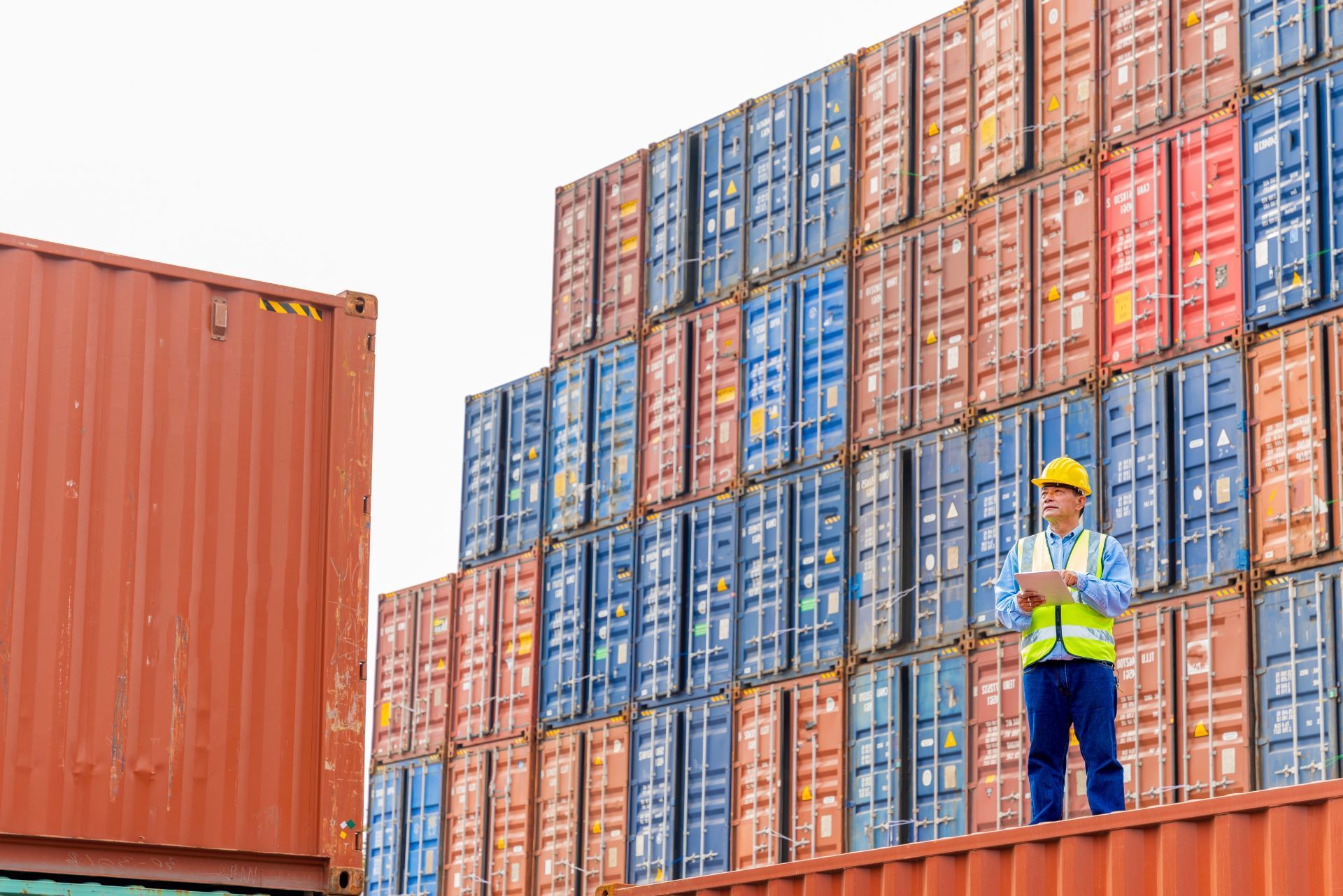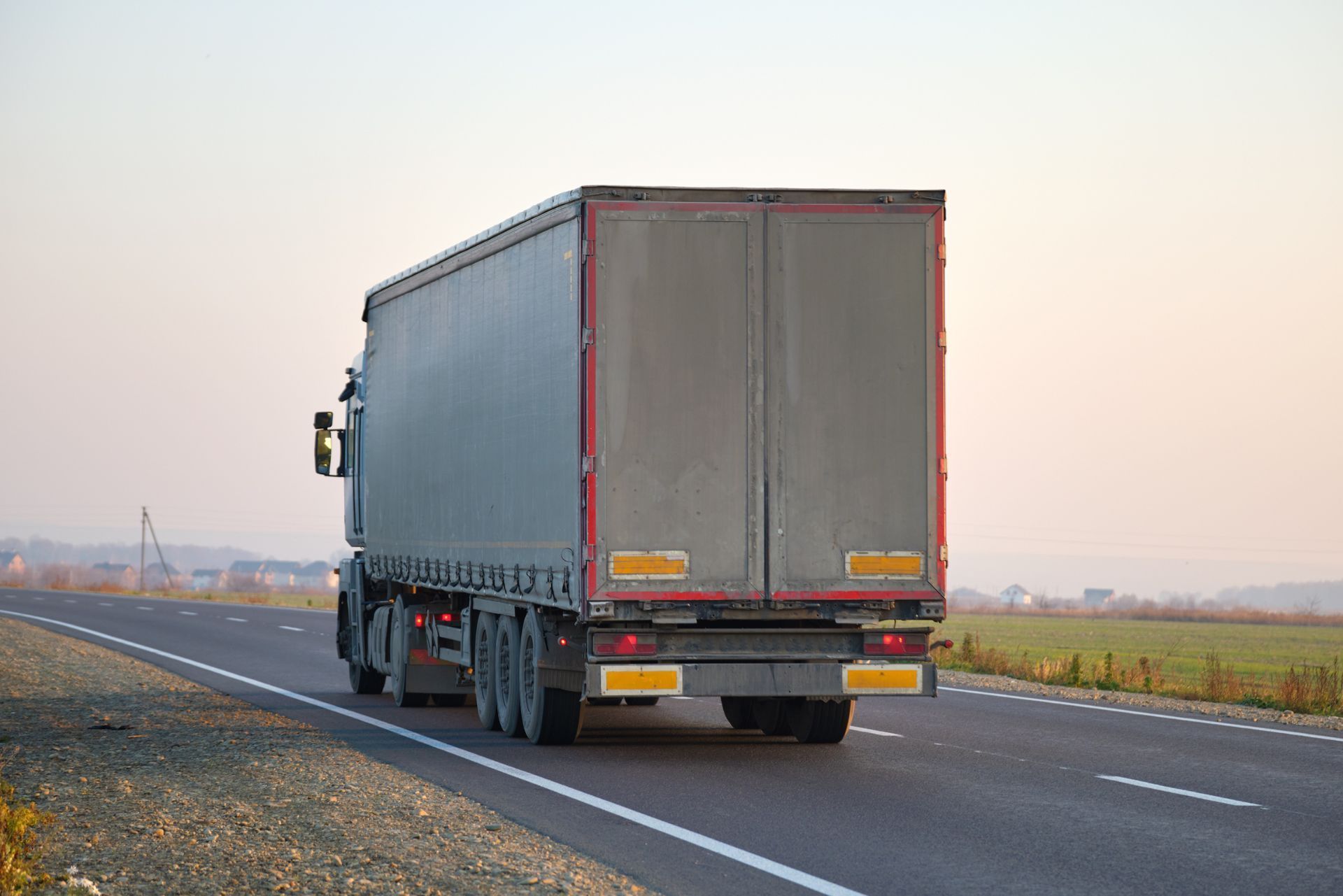Top 3 Recommended Policies

In the complex world of trucking operations, understanding the concept of contingent liability is crucial for fleet owners, operators, and stakeholders. This type of liability can significantly impact a trucking business's financial health and operational stability. This article aims to provide comprehensive insights into contingent liability, its implications for trucking operations, and strategies to mitigate risks associated with it.
What is Contingent Liability?
Contingent liability refers to a potential obligation that may arise depending on the outcome of a future event. In the context of trucking operations, this could involve various scenarios such as accidents, cargo damage, or legal claims. Unlike direct liabilities, which are certain and quantifiable, contingent liabilities are uncertain and depend on specific conditions being met. This uncertainty can create challenges for trucking companies in terms of financial planning and risk management, as they must prepare for potential liabilities that could impact their bottom line without any immediate indication of their occurrence.
Examples of Contingent Liabilities in Trucking
In the trucking industry, several situations can give rise to contingent liabilities. For instance, if a truck is involved in an accident that results in injury or property damage, the trucking company may face claims for compensation. However, the actual liability may depend on the investigation's outcome, insurance coverage, and whether negligence can be established. The nuances of fault determination can complicate matters further; for example, if the accident was caused by a third party, the trucking company might have grounds to dispute liability, but this can lead to protracted legal battles that consume resources and time.
Another example includes cargo claims. If a shipment is damaged or lost during transit, the trucking company may be liable for the value of the goods, but this liability is contingent on the terms of the shipping contract and the circumstances surrounding the loss. The specifics of the contract, such as whether the goods were properly packaged and the extent of the trucking company's responsibility during transit, can significantly influence the outcome. Furthermore, the trucking company may also need to consider the mplications of cargo insurance, which may cover certain losses but could also have exclusions that leave them exposed to liability.
Legal Framework Surrounding Contingent Liability
The legal framework for contingent liabilities varies by jurisdiction and is influenced by various factors, including state laws, contractual agreements, and industry regulations. Trucking companies must navigate these legal landscapes to understand their potential exposure to liabilities. For instance, some states may have specific statutes that govern liability in trucking accidents, which can affect how claims are processed and resolved. Additionally, federal regulations, such as those set forth by the Federal Motor Carrier Safety Administration (FMCSA), can also play a role in determining liability in certain situations.
In many cases, liability may be mitigated through indemnity clauses in contracts, which can shift the risk from one party to another. Understanding these legal nuances is essential for trucking operations to safeguard their interests and manage potential risks effectively. Moreover, it is crucial for trucking companies to maintain comprehensive records and documentation to support their case in the event of a claim. This includes maintaining detailed logs of vehicle maintenance, driver training, and accident reports, all of which can be invaluable in establishing the company's diligence and adherence to safety standards. By proactively addressing these legal considerations, trucking companies can better position themselves to handle the complexities of contingent liabilities and minimize their financial exposure.
Why Contingent Liability Matters for Trucking Operations
Contingent liabilities can have significant financial implications for trucking companies. Recognizing and managing these potential obligations is vital for maintaining operational stability and ensuring long-term success.
Financial Impact
The financial impact of contingent liabilities can be profound. If a trucking company faces a large claim that materializes into a liability, it may have to allocate substantial resources to cover legal fees, settlements, or damages. This can strain cash flow and affect the company's ability to invest in growth or maintain operations.
Moreover, contingent liabilities can influence a company's creditworthiness. Lenders and investors may view a high level of contingent liabilities as a risk factor, potentially leading to increased borrowing costs or difficulties in securing financing. This perception can create a vicious cycle, where the need for capital becomes urgent, yet the company’s financial standing makes it harder to obtain. As a result, trucking companies must be proactive in their risk management strategies, ensuring they have adequate insurance coverage and legal safeguards in place to mitigate these potential liabilities.
Operational Risks
Beyond financial implications, contingent liabilities can pose operational risks. For instance, a trucking company facing a significant legal claim may need to divert resources to manage the situation, impacting day-to-day operations. Additionally, reputational damage from accidents or claims can lead to a loss of customers and contracts.
Furthermore, the operational risks associated with contingent liabilities extend to employee morale and retention. When a company is embroiled in legal disputes or facing financial uncertainty due to potential liabilities, it can create a stressful work environment. Employees may feel insecure about their jobs or become disengaged, which can lead to decreased productivity and increased turnover. Maintaining a positive workplace culture becomes even more challenging in such circumstances, as management must balance the demands of crisis management with the need to support and motivate their workforce. This multifaceted impact underscores the importance of not only addressing financial risks but also fostering a resilient organizational culture that can withstand the pressures of contingent liabilities.

Identifying potential contingent liabilities is a critical step for trucking companies in managing risk. This process involves assessing various aspects of operations, contracts, and external factors that may contribute to potential obligations.
Risk Assessment and Management
A comprehensive risk assessment should be conducted regularly to identify areas of exposure. This assessment can include reviewing accident history, evaluating safety protocols, and analyzing claims data. By understanding where risks lie, trucking companies can develop strategies to mitigate them.
Implementing robust safety measures, such as driver training programs and regular vehicle maintenance, can significantly reduce the likelihood of accidents and claims, thus minimizing contingent liabilities. Moreover, investing in technology, such as telematics and GPS tracking, can enhance operational efficiency and safety. These tools not only provide real-time data on vehicle performance and driver behavior but also help in proactively addressing potential issues before they escalate into liabilities. For instance, monitoring speed and braking patterns can lead to targeted training interventions, ultimately fostering a culture of safety within the organization.
Contractual Obligations and Insurance Coverage
Contracts play a vital role in determining contingent liabilities. Trucking companies should carefully review contracts with shippers, brokers, and third-party logistics providers to identify any clauses that may expose them to liability. Additionally, ensuring adequate insurance coverage is essential for protecting against potential claims.
Insurance policies should be tailored to the specific risks associated with trucking operations, including liability coverage, cargo insurance, and workers' compensation. Regularly reviewing and updating insurance policies can help ensure that coverage aligns with current operational risks. Furthermore, it is beneficial for trucking companies to engage in discussions with their insurance providers about emerging risks in the industry, such as cyber threats and regulatory changes. By staying informed and adapting their insurance strategies accordingly, companies can better shield themselves from unforeseen liabilities that may arise in an increasingly complex operational landscape.
Strategies to Mitigate Contingent Liability Risks
While contingent liabilities cannot be entirely eliminated, trucking companies can implement strategies to mitigate their risks. These strategies focus on proactive measures to reduce exposure and prepare for potential claims.
Implementing Safety Protocols
One of the most effective ways to mitigate contingent liability is through the implementation of comprehensive safety protocols. This includes regular training for drivers on safe driving practices, adherence to regulations, and proper handling of cargo.
Additionally, investing in technology such as GPS tracking and telematics can help monitor driver behavior and vehicle performance, allowing companies to identify and address potential safety issues before they lead to accidents. By analyzing data collected from these systems, companies can gain insights into driving patterns and implement targeted training programs to address specific areas of concern, ultimately fostering a culture of safety within the organization.
Establishing a Contingency Plan
Having a well-defined contingency plan in place can help trucking companies respond effectively to incidents that may lead to contingent liabilities. This plan should outline procedures for reporting accidents, managing claims, and communicating with stakeholders.
Regularly reviewing and updating the contingency plan ensures that it remains relevant and effective in addressing emerging risks and challenges in the trucking industry. Furthermore, conducting drills and simulations can prepare employees for real-life scenarios, ensuring that everyone knows their roles and responsibilities in the event of an incident. Engaging with legal and insurance experts during the development of the contingency plan can also provide valuable insights into potential liabilities and the best practices for managing them, ultimately enhancing the company's resilience against unforeseen events.

Understanding the Role of Insurance in Contingent Liability
Insurance plays a crucial role in managing contingent liabilities for trucking operations. It provides financial protection against potential claims and helps companies navigate the complexities of liability exposure. In an industry where the stakes are high and the risks are numerous, having a solid insurance strategy can mean the difference between a thriving business and one that struggles under the weight of unforeseen liabilities.
Types of Insurance Coverage
Trucking companies should consider various types of insurance coverage to protect against contingent liabilities. General liability insurance is essential for covering third-party claims related to accidents, while cargo insurance protects against loss or damage to goods in transit. This type of insurance is particularly important as it not only covers the physical goods but also provides peace of mind to clients, knowing that their shipments are protected against theft, damage, or unforeseen delays.
Additionally, specialized coverage such as motor truck cargo insurance and non-trucking liability insurance can provide further protection tailored to the unique risks of the trucking industry. Motor truck cargo insurance specifically addresses the risks associated with transporting goods, ensuring that if an accident occurs, the financial burden does not fall solely on the trucking company. Non-trucking liability insurance, on the other hand, covers incidents that occur when a truck is not being used for business purposes, which is a common scenario that can lead to unexpected liabilities.
Working with Insurance Professionals
Collaborating with insurance professionals who specialize in the trucking industry can help companies identify appropriate coverage options and ensure they are adequately protected against contingent liabilities. These experts can provide insights into industry trends, emerging risks, and best practices for managing liability exposure. They can also assist in navigating the often-complex landscape of insurance policies, ensuring that businesses understand the nuances of their coverage and any potential gaps that may exist.
Furthermore, insurance professionals can help trucking companies stay compliant with regulatory requirements, which can vary significantly by state and region. This is particularly important as non-compliance can lead to hefty fines and increased liability exposure. By maintaining an ongoing relationship with these experts, trucking companies can adapt their insurance strategies as their operations evolve, ensuring they remain protected against new risks that may arise in a rapidly changing industry.
Conclusion
Contingent liability is a critical consideration for trucking operations, with the potential to impact financial health and operational stability. By understanding the nature of contingent liabilities, identifying potential risks, and implementing effective mitigation strategies, trucking companies can navigate this complex landscape more effectively.
Ultimately, proactive risk management, comprehensive insurance coverage, and a commitment to safety can significantly reduce exposure to contingent liabilities, allowing trucking operations to thrive in a competitive environment.
As the trucking industry continues to evolve, staying informed about contingent liability and its implications will be essential for ensuring long-term success and sustainability.
Contact Us

